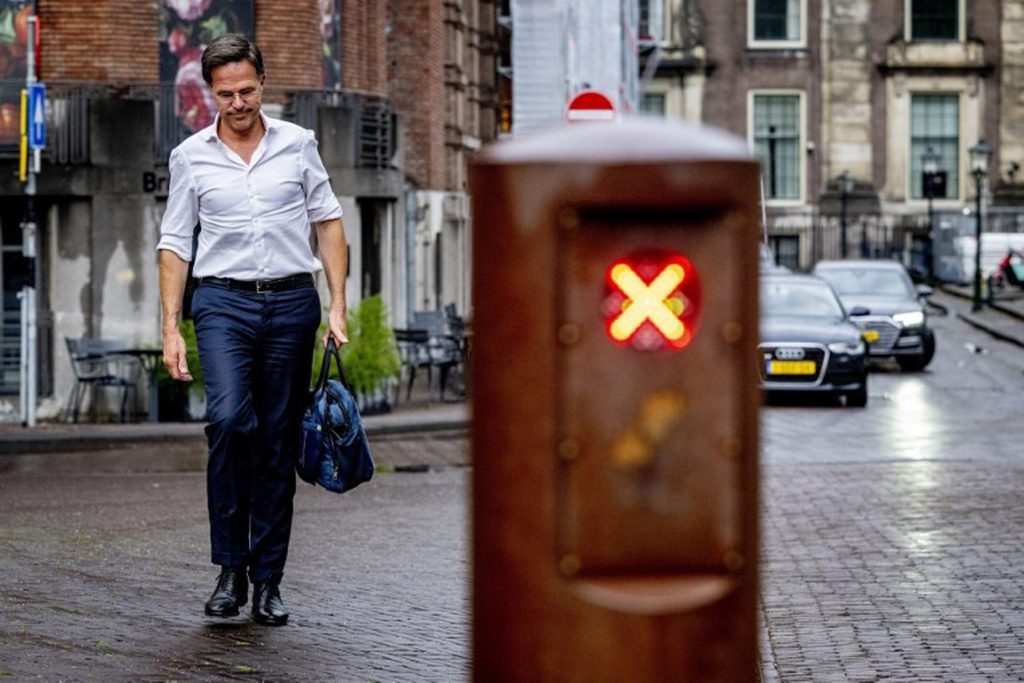The coalition government of Dutch Prime Minister Mark Rutte has collapsed following stormy negotiations between the four ruling parties over refugee reception policy, national media reported on Friday.
“The government has failed to reach agreement on measures to restrict the influx of asylum seekers. This is what is being reported in The Hague,” Dutch public broadcaster NOS wrote on its website. “This is thus the end of the Rutte IV government.”
Nicknamed 'Teflon' for his ability to stay in power for 12 years despite scandals, the longest-serving prime minister in Dutch history took the reins of his fourth coalition in January 2022 after a record 271 days of negotiations.
In recent days, however, the head of government, from the right-wing liberal VVD party, had stirred up trouble among his partners on the right and centre, demanding that they adopt a series of divisive measures around the reception of asylum seekers.
Rutte demanded that the other three parties in the ruling coalition, the Christian Democrats of the CDA, the centrist Liberals of the D66 and the small Protestant formation ChristenUnie, agree to introduce a quota for the number of children from conflict zones who can be granted asylum in the Netherlands.
He further demanded that the children of refugees already settled in the Netherlands be no longer allowed to join their parents if a monthly quota of 200 children has already been reached.
Two more flexible parties on immigration, ChristenUnie and D66, are opposed to the plan.
Because of its religious convictions, ChristenUnie, a large proportion of whose voters are in the ‘Bijbelgordel’ or Bible Belt - a conservative area of the country - is traditionally opposed to a tougher policy on the reception of asylum seekers.
“We have all been created and are all loved by the same God and it is also from him that we have received the earth on which we live. We are therefore convinced that it is our duty to provide a safe place for the victims of disasters, wars, persecution and oppression,” ChristenUnie wrote on its website.
After initial negotiations on Wednesday, members of the government met again urgently on Thursday night to discuss the Prime Minister’s proposals, but without reaching an agreement. That led to speculation that Rutte’s fourth government, commonly referred to in the Netherlands as ‘Rutte IV,’ would quickly fall.
Since the start of his first term in 2010, Rutte and his right-liberal formation have faced competition and pressure from several far-right parties, in particular Geert Wilders’ PVV, fiercely opposed to immigration.
With the collapse of the coalition, the Dutch Prime Minister is expected to re-enter the general election race with the aim of winning a fifth term. However, he could face competition within his party for the position of list leader.
Originally scheduled for 2025, these elections, which determine the composition of the lower house of the Dutch parliament, are expected to be called soon, possibly in the next few months.
The race for parliamentary seats is shaping up to be a tough one for the parties in the outgoing government, while a new pro-farmer formation opposed to EU environmental regulations won the most seats in March’s regional elections, which also determine the make-up of the Senate.

